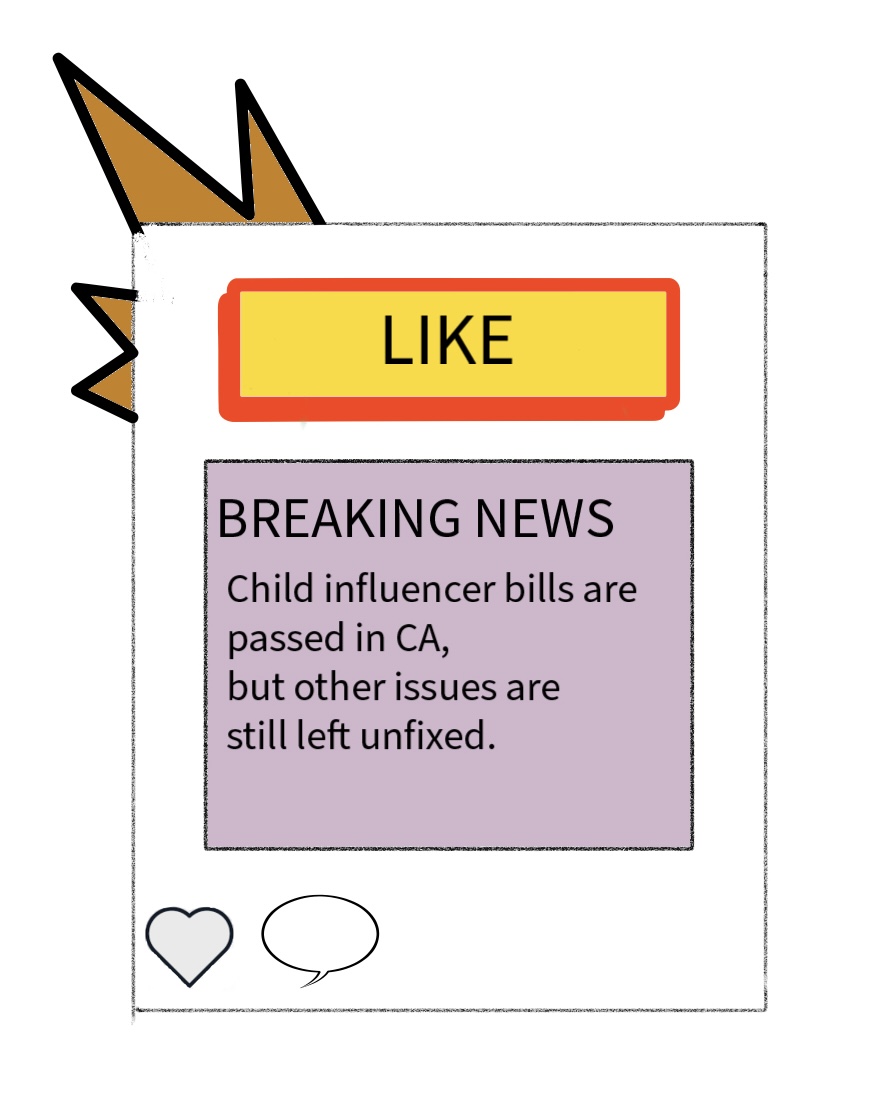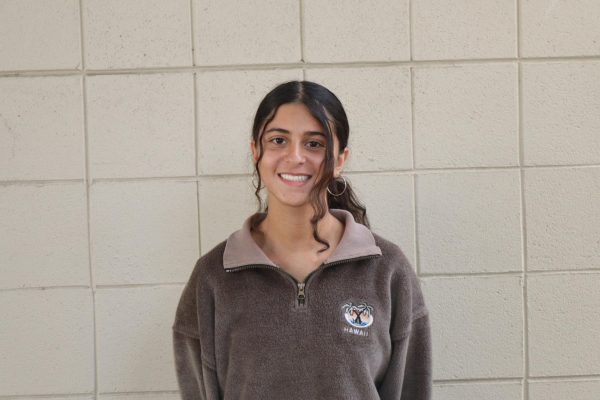Governor Gavin Newsom this fall signed two bills into law that related to the emerging industry of an underage online personality: CA Senate Bill 764, which mandates guardians of child influencers to set aside a percentage of the child’s content-related earnings, and CA Assembly Bill 1880, which would include child influencers in the existing law that provides for the establishment of a Coogan Trust Account — a protected saving account for child performers.
Although this change will benefit several teen influencers in California, this is only a stepping stone to the changes that need to be made. Beyond monetary-related policy, there needs to be more action taken to protect the physical and mental safety of these child influencers.
California is the only state besides Illinois that has so far established laws to protect child influencers’ financial earnings from their guardians, yet the issue stretches beyond financial mistreatment. Time and time again, we have seen family influencers abuse the earnings of their children — the very stars who often garner the majority of views.
In 2022, for example, Tiffany Smith, mother of popular teen influencer Piper Rockelle and manager of Rockelle family’s YouTube channel, was sued by 11 teens who often appeared in Rockelles’ videos. The teens described Smith as a sexual and emotional harasser and sought $22 million in compensation.
Thanks to California’s two new laws, the case closed with Smith owing $1.85 million in settlement total — but the 11 teens did not receive the proper settlement they requested or deserved. The agreement did not properly compensate for the time they invested into the channel and the counts of sexual assault they reported. Once the settlement was split evenly, each child received less than $165,000 of the $22 million they originally sued for.
Bills that hold parents financially accountable are significant, but child influencers — perhaps the most common child actors of this generation — deserve more than just money. They deserve to be protected from abuse. To take strides toward this goal, another stricter bill should be passed that allows children to report cases that will seriously be looked into, without the excuse that the evidence was not explicitly showing cases of abuse. The state has mandated reporter laws and a strict penal code for child abusers, but oftentimes, child influencers don’t receive the help they need because of their media appearances, which tend to make them appear safe even when they’re not.
Machelle Hobson, Arizonan YouTube mom of seven adopted kids, made entertainment based videos with her adopted kids. The YouTube channel was called “Fantastic Adventures” and videos ranged from the children playing nerf gun games to roleplaying superheros.
Despite this seemingly perfect family on camera, Hobson abused and starved her kids. She was charged with 29 total counts of child abuse, child neglect, child molestation and unlawful imprisonment in 2019 but died of a brain injury before her trial. The most disgusting part about this case was that Hobson was reported 11 times between 2011 and 2019, but the California Department of Public Health deemed each report to be without enough “definite” evidence. If a nationwide bill that took more action to prevent child influencer abuse existed, those kids most likely could have been saved much earlier.
California Bills 764 and 1880 are necessary additions to state law, but the fight for child influencer protection cannot stop here. The state needs to enact laws that provide direct ways for child influencers to report neglectful and abusive behaviors by their family members or guardians. These children, often starting their jobs around 7 and 8, should not have to wait over eight years to be freed from their parents; their pleading reports of abuse need to be heard the first time.




























